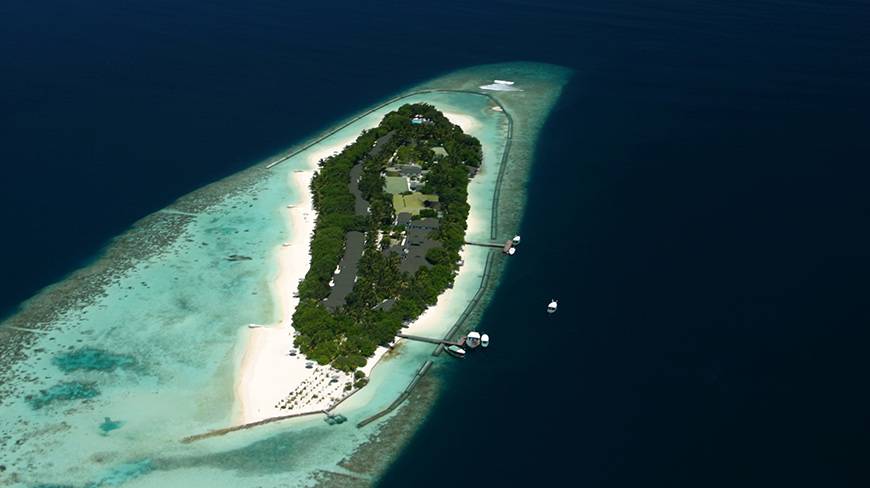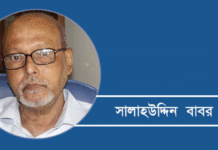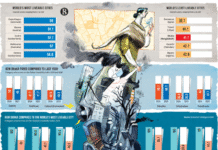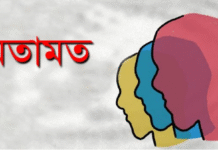In a sudden move, Maldives is closing its mission in Bangladesh on April 1. This is not an April fool’s joke but a final closure. Closure was earlier threatened in 2009, during that time, as the high commissioner of Bangladesh to Maldives, I was able to persuade the then President Nasheed to keep the mission open.
He appreciated the importance of such a bilateral link. A bond was strengthened. It is surprising that because there is a financial crunch in Maldives now, the new government is to close its mission in Bangladesh, which supplies so many migrant workers, while the one in Pakistan remains open although they supply none.
The archipelago of Maldives, renowned for its natural beauty and fabulous overwater villas on ultramarine blue lagoons, makes it one of the finest tourist destinations. But, behind these remarkable villas lie a dark story of the blood, sweat, tears and death of numerous workers, mostly Bangladeshis. They construct them under hazardous conditions and their lives seem dispensable. Tourism provides 28% of the GDP and 65% of the foreign exchange. It also generates 90% of the revenue from import duties.
Bangladesh has over 70,000 migrant workers in the Maldives – more than from India or Sri Lanka. They face dubious recruitment procedures, their passports are seized by unscrupulous brokers on arrival, and often wages are withheld. The work is arduous and the danger of death is quite prevalent. The situation is dreadful.
As high commissioner (2008-2010) I found that on an average one Bangladeshi worker died each week. For instance one died from poisonous fumes while cleaning a well. He was just 22 years of age. While Bangladeshi labourers were constructing a resort villa, over a lagoon, a wooden pole fell over one of them and he died from head injury. Such events occurred regularly.
There was no legal requirement for compensation but as the bodies of the deceased could not be buried without clearance from the Bangladesh mission, we were able to negotiate with the employers. It was sometimes possible to get an employer to remit $500 to the family of the deceased – a small price to pay for a human life.
It was also possible to legalise over 17,000 migrant workers, but their status was still precarious. Maldives was placed in the end of 2008 by the US State Department’s Tier Two Watch List for Human Trafficking. They identified many expatriate workers as victims of “forced labour, fraudulent recruitment, confiscation of identity and travel documents, withholding or nonpayment of wages, and debt bondage.”
Despite this, during the 15th Saarc Summit in 2008 in Colombo, the president of Maldives requested the prime minister of Bangladesh for skilled and semi-skilled workers. Consequently, the Maldives’ mission in Bangladesh could have negotiated mechanisms to regularise the recruitment procedures to ensure acceptable working conditions. While I was high commissioner, among other bilateral activities, a Cultural Agreement and an MOU on Education were finalised. A manpower MOU was being considered. All efforts were made to strengthen bonds between the two Saarc countries.
A 14-day “Festival of Bangladesh” was organised to display the cultural diversity and rich heritage of our country. It began with a forum on the historical links between the two states.
Hundreds of years ago the main export of Maldives was “cowry shells” which were used as legal tender in Bengal and parts of South Asia. Boats, known as “Dhonis,” streamed through the Indian Ocean to reach the ports of Bengal, mainly Chittagong. They unloaded the cowry shells and took textiles, non-perishable foods and wooden boxes to Maldives. A Bengali princess was once a queen of that country. We displayed strong ties between the two nations that most had forgotten.
The festive music, dance, songs, and painting exhibition enthralled Maldivians. The events ended with an auction of painting produced by famous Bangladeshi artists.
Bangladesh has always been ready to lend assistance to Maldives. The Bangladeshi Army undertook relief operations within 48 hours of the 2004 tsunami. Victims received pure drinking water, patients were treated, sunken ships were recovered, relief materials distributed and hygiene conditions improved. Again in 2007, Bangladesh offered US $1m to help the flood-affected country.
Currently, Bangladesh provides 97 scholarships to students from Maldives at various medical colleges. Half of them have recently graduated and are undergoing internship training. Furthermore, 30 physicians are already in Maldives working in hospitals and clinics and 15 more doctors are being recruited. In 2012 the Republic of Maldives introduced direct flights from to Dhaka via Chennai and expressed its willingness to introduce a direct shipping link between Male and Chittagong for trade.
Bangladesh and Maldives are two of the nations most vulnerable to the effects of climate change. The 2012 UN Climate Summit at DOHA acknowledged both as top countries in adaptation. Both have developed strategies and established “Climate Change Trust Funds” to combat the adverse effects of global warming. They could collaborate in international forums to make lasting impact on climate change policies.
The Maldives economy is suffering from the costs of elections and termination of the GMR airport contract gained during Nasheed’s government. It was India’s largest private investment, over US $500m. Similarly, a Tata Housing Project is facing difficulties. Clearly, decisions based on political antagonism can be counterproductive. Recently, out of desperation, President Yameen visited India for a loan of US $25m after cancelling investments from India! Quite ironic.
Now, one result of the financial constraint is the closure of the Maldives mission in Bangladesh. It is the wrong move. Diplomatic continuity is a necessity and reciprocity is essential to foster good relations with a friendly Saarc state. But countries are not always ruled by rational consideration of advantages, but often by unthinking foolhardiness.
Source: Dhaka Tribune










